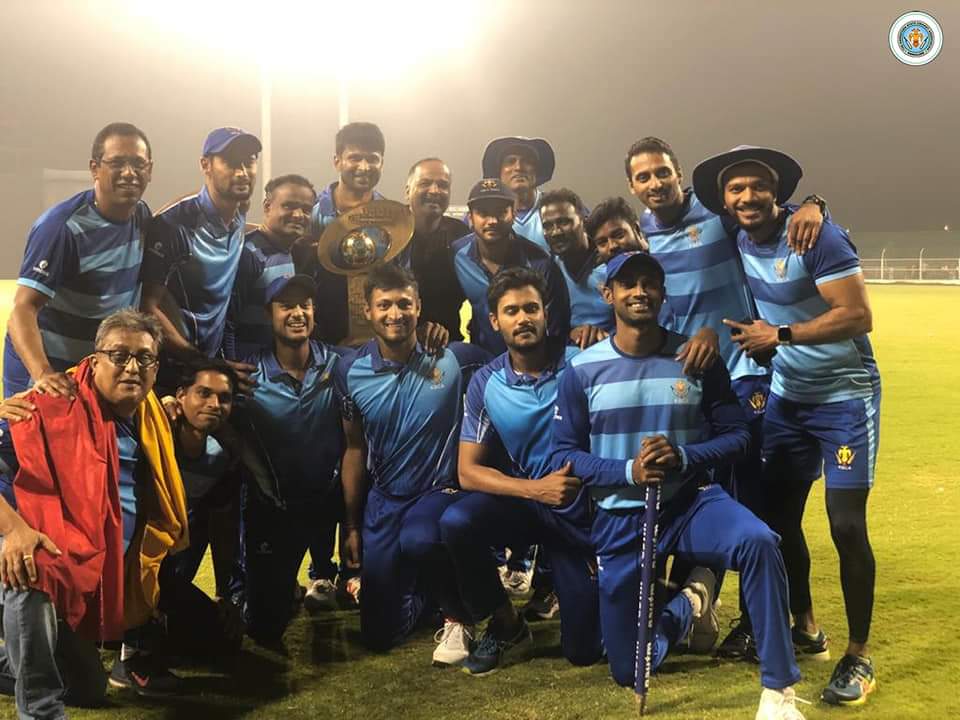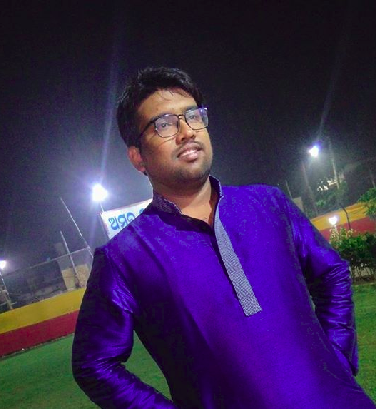Success through batting chorus - Karnataka’s staple plan to double

When Vijay Kumar announced a move to Pondicherry - bidding goodbye to his home team Karnataka - things seemed gloomy for arguably the second-best domestic team in India’s cricket history. Karnataka needed solid support to back their strengths and then get up to extend their hegemony.
Karnataka has always produced some of the finest practitioners of the sport - from the very elegant Gundappa Vishwanath to the inimitable Rahul Dravid, from fierce Anil Kumble to silky KL Rahul, from dominant Erapalli Prasanna to always-up-for-a-fight Javagal Srinath, and the list is unending - and the sport has truly been a part of the culture here. Bangaloreans love their sportsmen because their sportsmen dominate, make them smile, don’t bulge under pressure, and don’t lose their focus under crunch situations. They fight, fight hard, and promise to bring back what they believe is rightfully theirs.
How does it matter if Vinay Kumar is not here? Ronit More would rise like a pro. What if Shreyas Gopal has a bad day in the office? Krishnappa Gowtham can still defend 13 runs. What if Mayank Agarwal goes for a golden duck? Their captain is missing his own “Sangeet” to smash a six out of the stadium while dimming their archrivals’ dreams one by one, step by step. Karnataka believed they can and they did. It was just not a coincidence.
Yes, it was just not a coincidence rather a well-laid plan to dominate and sneak in through the backdoor. They had a decent bowling attack, comprising of Abhimanyu Mithun, Gopal, Gowtham, and More, but the team management understood it pretty early that it was not going to help them win the cup if the batting doesn’t fire all cylinders. Call it stars aligning or the players finding a sudden wind, almost everyone started contributing heavily with the bat from the very first day of the Vijay Hazare Trophy. The presence of India regulars created such a buzz that almost two months later, they hold two domestic trophies in their cabinet - in the process becoming the first team to do so.
However, it all started with Pandey. Rahul had a poor Windies series, and Devdutt Paddikkal’s superhuman exploits were a thing of scouts talking about him heavily, and yet was not an indicative reality. Pandey joined the bricks one by one, and took the responsibility on his shoulder rather than expecting everyone else to do so. That, somehow, rubbed on the teammates as Padikkal first, and Rahul next joined the bandwagon. As Vijay Hazare Trophy came to an end, the celebration had been top-notch at the Chinnaswamy Stadium with the captain plundering 525 runs at an average of 105 and tournament strike-rate of 108.02. Likewise Virat Kohli in ODIs for India, the entire Karnataka batting started revolving around Pandey, and Agarwal joining them in a later stage, they had become an unstoppable force in the 50-over format.
By then, Karnataka had a blueprint of their own to follow in the Syed Mushtaq Ali, copying the tactics to the 20-over format almost exclusively. As my colleague Aakash Sivasubramaniam explained in his beautiful analysis here, Tamil Nadu stacked their team with spinners and with all of them bringing different skill-set there, they dismantled the opposition quite fashionably on wickets that were not really spin-friendly. Karnataka understood their own lacunae and with a batting line-up that had the ability to chase 200 in 17 overs, they left other teams to play catch-up.
Pandey scored at an average of 78.50 and an S/R of 164.39, Padikkal at 64.44 and 175.75, KL Rahul at 52.16 and 155.72, Rohan Kadam at 43.00 and 131.63. All this combined to give the team a box-appeal and an aura that was not just easy to replicate. Karnataka were reviving memories of 2013-14. But rarely do the path to success is filled with bouquets sans the bricks. When the caravan moved to Surat, the team had completely different challenges to tackle. From the outside, it seemed like their plans that had completely flourished at the Dr Y.S. Rajasekhara Reddy ACA-VDCA Cricket Stadium in Visakhapatnam would undergo a change, with the spinning duo of Gopal and Gowtham taking precedence.
Giving insights on it, former Indian cricketer turned commentator Hemang Badani discussed, in his interview with ESPN Cricinfo ahead of the final day, that Surat’s black soil pitches were heaven for batsmen but at the same time, the red soil wickets were so difficult to pick that teams had been bowled out for less than 100 on multiple occasions. Karnataka were lucky that both the knock-out matches were played on the former kind - meaning it directly played to their strengths, leaving Haryana and Tamil Nadu in a spot, almost clueless too.
Credit should go to Baba Aparajith and Vijay Shankar for the way they forged a partnership, threatening Karnataka for the major part of the last seven overs, but the trick was with one wicket. However, with Mithun being sidelined, the odds were firmly stacked against Karnataka in the last few overs, and when Ravichandran Ashwin hit two fours in two balls, the signs were ominous. However, by holding their nerve, and inflicting that crazy run-out, Karnataka secured what was rightfully theirs. The title was defended.
The one-run win at the end was an ironic one given how did they out-bat almost all oppositions and hold their nerves better than many. And it is also the time to celebrate as they have once again become the force they have always prided themselves in. They are the undisputed king of Indian cricket now. Teams better beware as Ranji Trophy starts in a week’s time.

Comments
Sign up or log in to your account to leave comments and reactions
0 Comments